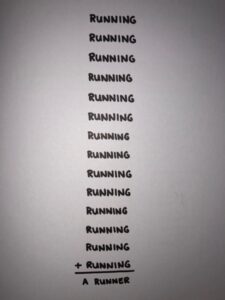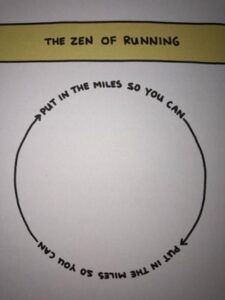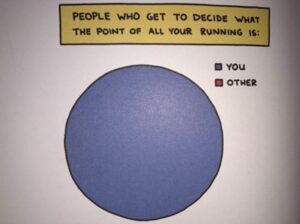What Did Coach Mike Leach Have That Bill Belichick Lacks?
https://sportliterate.org/wp-content/themes/osmosis/images/empty/thumbnail.jpg 150 150 bjj-sportliterate bjj-sportliterate https://secure.gravatar.com/avatar/1b3ceda989693317c6e5b76996b682ca?s=96&d=mm&r=gWhat Did Coach Mike Leach Have That Bill Belichick Lacks?
by Daniel A. Hill
When The Athletic published its anonymous NFL players poll mid-season in 2023, one stunning result emerged. Did you see the poll results in response to the question, “Which current coach, aside from your own, would you want to play for?” Way out ahead was the Pittsburgh Steelers’ veteran coach Mike Tomlin at 26.4 percent. Second was the Miami Dolphins newbie coach Mike McDaniel at 14.6 percent. Left barely cracking the ranks of the top coaches being picked was the New England Patriots coach Bill Belichick. The Gray-Hoodie Grouch came in 12th place at 2.1 percent, quite the come-down for the guy hovering just behind Don Shula and George Halas in the race to be the all-time, winningest NFL coach.
Now, you might quibble with the results. If you’re a pure stats guy, you can say: well, a poll result based on input from only 72 players in a league with 1,696 players on the league’s active rosters covers only 4.2 percent of the waterfront. That’s a good point to make.
Nevertheless, stick to that rebuttal and you’ll be missing the boat here. For more than three seasons now Belichick has been drowning in the mediocrity that plagued his early days as a head coach for the Cleveland Browns, and I think I know the reason why. A contrasting example, the explanation, lies down in Key West, Florida, in a bar called Capt. Tony’s Saloon. There you’ll find that despite a history of famous guests ranging from Bob Dylan to Al Pacino and Dan Marino, only four stalwarts have been honored by having their bar stools hoisted on high. Between stools stamped with the names of Ernest “Papa” Hemingway and two U.S. presidents, John F. Kennedy and Harry Truman, you’ll find another stool bearing the name of a pirate who dressed up as a college football coach.
Meet the recently deceased Mike Leach.
Pegged as a “quirky, offensive mastermind,” the Dolphins newbie coach McDaniel has a profile that echoes the only pro or NCAA football coach I’ve ever known: the one-and-only Coach Leach. The Athletic quotes an NFL player saying of McDaniel, “He seems like a pretty fun coach to play for.” Could the same be said of Leach? There’s a lot of rah-rah, macho bullshit that goes on around teams — football foremost among the sports guilty of guys who would rather have an enema than admit to fear — so I can’t say for sure. What I can draw on is this when it comes to assessing Leach: a three-and-a-half-hour phone call with the guy as I drove from Salem, Oregon to Seattle; a nearly five-hour stint together in Capt. Tony’s; and three full days on site at Washington State’s stadium during the coach’s preseason camp.
The maverick I experienced on each of those occasions could be fairly described as borderline crazy, Sybil in cleats, somebody harboring a split personality. What kind of guy talks your head off while you’re navigating the #5 northward to Seattle and then, when you meet up at 10 p.m. at Capt. Tony’s, says barely a word until the clock strikes midnight? That’s Coach Leach for you in a nutshell.
Go into Capt. Tony’s now and the bar’s owner, Joey Faber, will tell you that Coach Leach told better stories than Hemingway and was way smarter than those Democrats that Leach, a die-hard conservative, never once spoke of to me. How to get Coach to talk, I pondered. The guy was nursing his favorite drink, grape vodka and water, barely making eye contact with me or Joey or anybody on the planet. I figured I had to join Coach Leach in outer space somewhere, so I finally broke the ice by asking him: “What’s your all-time favorite play, the one you ran that delighted you the most?”
Then I had my guy.
Leaning against the bar counter, Coach Leach pushed his finger along the top of it in a straight line. “Down the sideline,” he said, “flat out — bomb.” Only that wasn’t the play the Coach was proud of. “Down the sideline,” he said, “flat out — bomb.” No, I was only half drunk and hearing right. The Coach had run the same play for the second time in a row, and it still wasn’t the play he was so mighty proud of. “Down the sideline,” he said yet again, “flat out — touchdown.”
I looked into Coach Leach’s eyes looking for an answer that might only exist in the stratosphere. “I ran the play three times,” my drinking companion explained, “and each time with a different receiver. Fresh legs. I did it knowing the cornerback wouldn’t be subbed out. So, the guy was gassed, and we scored.”
If anyone else was still in the bar between 2 a.m. and when we parted ways an hour later besides Joey, who hovered, sometimes joining in, I didn’t notice. Once Coach Leach got going, you got comments like “If a pine cone war breaks out, you don’t really have any choice but to engage in it. I mean, there’s no neutral countries in pine cone wars.”
For those who knew Coach Leach well, that kind of comment wouldn’t be surprising at all. Leach will always be famous for having created an alternative universe peopled with favorites like the Apache chief Geronimo, the gonzo journalist Hunter S. Thompson, and the abstract painter Jackson Pollack, who hailed from Coach Leach’s home state of Wyoming. What was the Coach saying when he talked? It beats me. Go ahead and parse comments such as this one following a lost game: “It’s a little like breakfast. You eat ham and eggs. As coaches and players, we’re like the ham. You see, the chicken’s involved, but the pig’s committed. We’re like the pig; [officials] are like the chicken. They’re involved, but everything we have rides on this.” Go ahead and parse that press conference remark and tell me whether the guy was taking an indirect swipe at the officiating or merely hungry for his next meal. Who was Coach Leach? A Pepperdine University trained lawyer who looked a little like Archie Bunker and could talk like Yogi Berra.
If you get the impression that Coach Leach was an extremely extroverted Introvert, you’re on to something I think. When the guy did talk, he didn’t talk; he yapped. By comparison, nobody’s ever said that of Coach Belichick. Look at him on the sideline on Sunday during a Patriots game and what you see is nearly all that you hear: a scowl.
Truth be told, Coach Belichick isn’t human; he’s the Pillsbury Dough Boy cooking up mischief, bereft of the Dough Boy’s big smile. Asked to explain his success, Coach Doom-and-Gloom, the Gray-Hoodie Grouch, explained his formula as consisting of only two basic ingredients: 1) coach the players you have, not the ones you wished you had; and 2) keep it simple so your players don’t “fuck it up.”
I alone, however, know the secret of Belichick’s success. He’s a thief. While Coach Leach’s mind was until he died last year at age 61 a bank waiting to be looted, Belichick was and will always be a thief who cracks the safe in the wee hours of the morning. Not for him the bad odds of going in as a “hands-up,” free-shooting bank robber operating in broad daylight.
How did I arrive at my theory that distinguishes villainous, pirate-loving Saint Leach from the Criminal Mastermind holed up in Foxboro, Massachusetts? By getting Coach Belichick’s foremost accomplice to squeal in a manner of speaking. Of course, I’m now talking about Deflategate. In mid-January of 2015, I’m in San Francisco. More specifically, I’m in the West Coast studio of Bloomberg TV about to go live based on my recent front-page coverage in The New York Times.
The media likes fresh angles. So, while the article explored my use of facial coding to help pro and NCAA Division 1 sports teams draft, trade, and coach players more smartly, my recent appearance on ABC’s “Good Morning, America” focused on what politicians’ expressions can tell you about their emotional make-up. Now the producers at Bloomberg TV plan on having me walk through the signature expressions of Wall Street titans like Jamie Diamon and thieves like the Bernie who Madoff (with yours and everybody else’s money).
Then, only just a few moments before I’m scheduled to hit the airwaves myself, Tom Brady holds a brief press conference. Looking on in the Bloomberg studio, I see a guy uncharacteristically nervous as hell. A guy who is normally a combination of dimly lit smiles and full-on, cocky smirking, is betraying fear. Again, again and again his mouth pulls slightly wide, a tell-tale sign of anxiety.
For instance, during the Deflategate press conference, a reporter asks: “When and how did you supposedly alter the ball?” Even as the question is being asked, Brady swallows hard and the right side of his mouth stretches laterally, back towards the ear. Then as he answers, here’s what happens: (mouth pulls wider) “I didn’t” (mouth widens slightly more) “you know” (both eyebrows shoot upwards) “have any, uh… ” (mouth both widens again and falls open). “I didn’t hold onto the balls in any way.”
With a voice quavering at times, Brady will go on to offer other, not exactly on-point denials. One example is when he says, “I didn’t alter the ball in any way,” which Allysia Finley recasts in a Wall Street Journal opinion piece as follows: “Of course, you didn’t. Your ball boys did. That’s what flunkies are for: Doing things you don’t want to get caught doing and then taking the fall.”
Similarly, note Brady’s careful words when asked if he had cheated: “I don’t believe so. I feel like I’ve always played within the rules.” On Bloomberg TV just a few minutes after the Deflategate press conference ends, what kind of appraisal do I give on the air? How culpable might Brady be? Seeking a point of reference, I cite an old Second City comedy skit. In it John Belushi is playing U.S. Senator Howard Baker during the Watergate hearings. “What I want to know,” Belushi drawls, “is what did the President know and when did he stop knowing it?”
In the TV studio, I can hear the camera crew struggling to muffle their laughter. What I don’t hear, of course, is Belichick chuckling because he never does.
Locate photos of Coach Leach on game days and you can see what I see. Success is greeted by smiles that tend to be tentative half-smiles, the sign of an introvert. Meanwhile, play calling gone awry leads to mostly mild dismay. The eyebrows will lower in concern, and the mouth tends to either fall slightly ajar in a sign of mild surprise or there’s a faint raising of the upper lip that expresses mild disgust and anger. In short, as the guy stands with his hands on both hips along the sideline, Leach resembles a fairly docile brown bear hoping to eat some more honey sooner than later.
In contrast, Coach Belichick ups the ante on anger — an emotion that at its finest, inspires overcoming injustices but that at its worst becomes a matter of seizing control of one’s circumstances and outcomes, however one must, in a supreme case of the ends justify the means. What does anger look like in Belichick’s case? The Patriots long-time head coach pinches his eyebrows together hard. His lower eyelids are taut and straightlaced. His lips will not generally press together gently like Leach’s did. Instead, they bulldoze each other — leading to a bulge that forms below the lower lip. Throw in the upside-down smile created when your chin presses upwards, and you’ve got the complete picture. With his arms characteristically folded across his chest, the Gray-Hoodie Grouch becomes Fortress Belichick, inaccessible to mere mortals like you and me.
With Belichick, there is no joy in Mudville — just a long rap sheet full of allegations that have mostly resulted in either fines, suspensions, or other penalties lodged against the Patriots as a team, rather than against a coach who’s never been a glorious role model. Take a hard look. When it comes to competitive misconduct, Coach Grouch qualifies as a repeat offender subjected by the League to ever smaller financial hand slaps that ended altogether as he accumulated more Super Bowl trophies:
The 2007 Spygate scandal, e.g., signal-stealing in a game against the New York Jets. A $500k fine.
The 2012 case of grabbing a ref’s arm at game’s end to protest a call. A $50k fine.
The 2014 Deflategate scandal when underinflated balls help Patriots receivers grip the ball in the wet weather and keep Payton Manning’s visiting Indianapolis Colts on defense. No fine.
In 2015, headset malfunctions the visiting Steelers consider intentional sabotage. No fine.
In 2019, the Cincinnati Bengals video scandal in which a Patriot’s staffer is more interested in filming the sidelines, looking for signal calling, than in recording the on-field action. No fine.
And amid all these allegations of infractions, I’m leaving out the trick plays Coach Belichick the Conniver has called, many of which subsequently led to changes in the NFL’s rule book.
What a clever bastard.
Is Coach Leach really a saint? It’s complicated. But the answer is NO if you endorse his suspension in 2009 by Texas Tech for the sin of apparently ordering one of his players, Adam James, to be locked up in an equipment closet after James had sustained a concussion in practice. What a fool, you might say. What was Leach thinking? Why keep a player “out of the light” when his dad is a former NFL player and an ESPN analyst ready to shed plenty of limelight on why he believes his son’s alleged “humiliation” got so out of hand?
Okay, so I’ve now dawdled long enough here, dirty dish water circling the drain. You want the goods. Why exactly is Belichick failing lately, and what is it that Leach had that the Grump lacks.
To go there, let’s first acknowledge that what Super Bowls galore, 300-plus-wins Coach Belichick is IS a defensive genius. He’s a thief whose lineups and schemes succeed by stealing from opponents the plays they most want to run by shutting them down, hard. How else is the guy a thief? He’s rightfully “stolen” ideas from football books, 400 of which he donated to the Naval Academy after his father (a long-time coach) finally died. He’s also less righteously stolen opponents’ play signals and the lives of players and assistant coaches by demanding even longer hours than other NFL teams commit to.
Most of all, though, the Gray-Hoodie Grouch has stolen and locked away happiness to a degree that Mike could never abide. There I did it. I slipped. I called Coach Leach Mike because you could.
Who would dare call Belichick Billy Boy? Not I or anybody who would want to be on his team for long. The guy’s been so omnipotent. So gruff and hard-nosed. Tough. More than ready to damn with the faintest of praise. “Do your job” has been the Patriots’ mantra. Should you question authority, well, forget it. Belichick has reigned as the deviser of game plans and offensive play calls, and as the de facto general manager handling every trade and whom to draft. Which is why penalizing the team instead of also continuing to fine Belichick himself makes no sense. After all, there’s, frankly, ZERO separation between the Patriots as a team and Belichick as the team’s God almighty.
Why has the Gray-Hoodie Grouch reigned for so long in Foxboro? Success breeds tolerance. When the Grouch’s assistant coaches have tried to implement his brand of stern discipline elsewhere, what’s happened? The answer is some pretty awful failures. It’s one thing to lose. It’s another thing to have your players pop champagne bottles or light up cigars in the locker room when you get fired, as reportedly happened to a pair of the Grouch’s former assistants turned head coaches in the NFL.
Again, was Coach Leach a saint? I can’t say yes. In Pullman, Washington, I watched the losers of drills be forced to wear pink, pull-over mesh jerseys. Pink = wuss. That was the logic, screwy and sexist as it was and for once I didn’t want to catch Mike’s glance for fear he would sense my dismay. Nor did the Coach intervene when I warned him that one of his offensive linemen wasn’t gelling with his teammates and looked downright, catatonically glum, a hint that turned into a suicide attempt a few weeks later.
That said, how can you not like a guy who adored pirates and for whom time meant next to nothing? Legend has it that Coach Leach once stayed on a call for 90 minutes with someone who had dialed a wrong number. In contrast, Coach Belichick’s Naval Academy family ties are reflected in the Patriots’ military-style order, rigorously imposed, a culture where no insubordination is allowed, the AFC’s western division Raiders’ eyepatch-and-cross-swords pirates logo be damned.
A shipshape, uptight defensive mindset can have its merits in football as elsewhere in life. But going on offense rewards also having other attributes you can call on. That’s where Coach Grouch is vulnerable. For the longest time, Tom Brady could paper over the divide. Not one of Belichick’s Super Bowl victories came before Brady arrived in Foxboro or after he left. Meanwhile, Brady obviously went on to win it all again with the Tampa Bay Buccaneers — oh, no: pirates again — in 2020, right after saying goodbye to the only NFL head coach the star quarterback had known.
In a New York Times Magazine profile of Coach Leach, the Moneyball author Michael Lewis happily described the Coach’s pass-happy, Air Raid offense as “a mood: optimism. It is designed to maximize the possibility of something good happening rather than minimize the possibility of something bad happening.” Not by chance did Leach’s quarterbacks at Texas Tech, Washington State and, finally, Mississippi State all thrive. In Don Coryell’s San Diego Chargers offense, led by quarterback Dan Fouts, the NFL had seen a similar vertical attack mode beginning in 1978. But never had college football seen such an explosion of passing yards, and the idea that fourth down might represent just another opportunity to spread four or five receivers along the line of scrimmage.
In Coach Leach’s scheme, quarterbacks were meant to hunt for treasure on the high seas. The guy taking the snap from center might select as much as 70 percent of the plays being run given Leach’s approach: “You’re out there on the field. You can see the way the defense is lined up better than I can.”
The Gray-Hoodie Grouch doesn’t see the situation like that. What more than anything else apparently caused Brady to leave for Tampa Bay? He wanted to be allowed some input regarding how the offensive schemes would unfold. Out the door went a long-term, successful relationship. In a way, the end of the Belichick-Brady bromance was not unlike how during the making of the Abbey Road album, John Lennon suggested to Paul McCartney that George Harrison’s strides as a singer-songwriter meant The Beatles should move to four songs apiece on future albums. McCartney ignored the idea, cementing the band’s dissolution.
Poor draft picks. Lousy trades. Paying too much for some players and not enough to land others on the roster. It can get ugly fast. At age 71, is it possible that more than Coach Belichick’s arteries are hardening? Lately, he’s been favoring assistant coaches he already knows too well, raising the specter of inbreeding. Might the goal of eclipsing Coach Don Shula’s record for all-time victories be in jeopardy now that Patriots owner Robert Kraft has grown tired of so much losing?
You could never fault Coach Leach for having an open mind, always exploring. Can you imagine Belichick stepping in for a television weatherman like Mike once did during his time in Lubbock, Texas? Who among the coaching ranks ever sought to discuss Moby Dick and the shape of cornflakes at almost the same time? Who else was ever quoted at a press conference as saying, “There’s nothing balanced about 50 percent run, 50 percent pass, because that’s 50 percent stupid”? And furthermore, did so after winning with a game plan that led to zero net yards gained from rushing the ball.
The truth is that Coach Belichick, Mr. Doom and Gloom, can never buy that kind of care-free attitude at any price and wouldn’t attempt to do so. The Gray-Hoodie Grouch is way too busy consigning players to his doghouse for minor infractions of team rules to bother. At Belichick’s inevitable Hall of Fame induction ceremony, coaching giants like his former colleagues Bill Parcells and Nick Saban may laud him. But there’s something small and pinched about the Foxboro Fortress that not even the sweetest words will relieve.
P.S. As nearly predicted in this essay written during the 2023-24 regular season, Bill Belichick ended his 24-year run in Foxboro and did so 15 victories shy of surpassing Don Shula’s all-time wins record. The big shock was that none of the eight NFL teams with a head coach slot open post-season hired Belichick. Maybe if Coach Grouch hadn’t wanted to retain his distinction as the only head coach in the league with complete control over his roster, he might have secured a new job. As it stands, however, Belichick’s failure to resign any player he drafted in the first three rounds since 2013 looms as a black eye, indicative of someone who’s better at diagramming x’s and o’s than deciphering the magic of what makes a player tick.
Daniel A. Hill is the author of 10 books including Emotionomics, which features a foreword by “The Simpsons” co-creator Sam Simon. He’s also served as an analyst of U.S. presidential candidates and debates for the past 20 years for major media outlets, including The New York Times, CNN, Fox, MSNBC, and Reuters as well as the programs ABC’s “Good Morning, America” and NBC’s “The Today Show.” For his work studying athletes for teams in professional and NCAA Division I sports, he received a front-page profile in The New York Times. Other media roles have ranged from frequently appearing as a guest on PBS’s critically acclaimed show “Mental Engineering” to hosting the podcast “Dan Hill’s EQ Spotlight” on the New Books Network (NBN), the world’s largest book review platform. His previous essays have been noted with honor in three editions of The Best American Essays.








